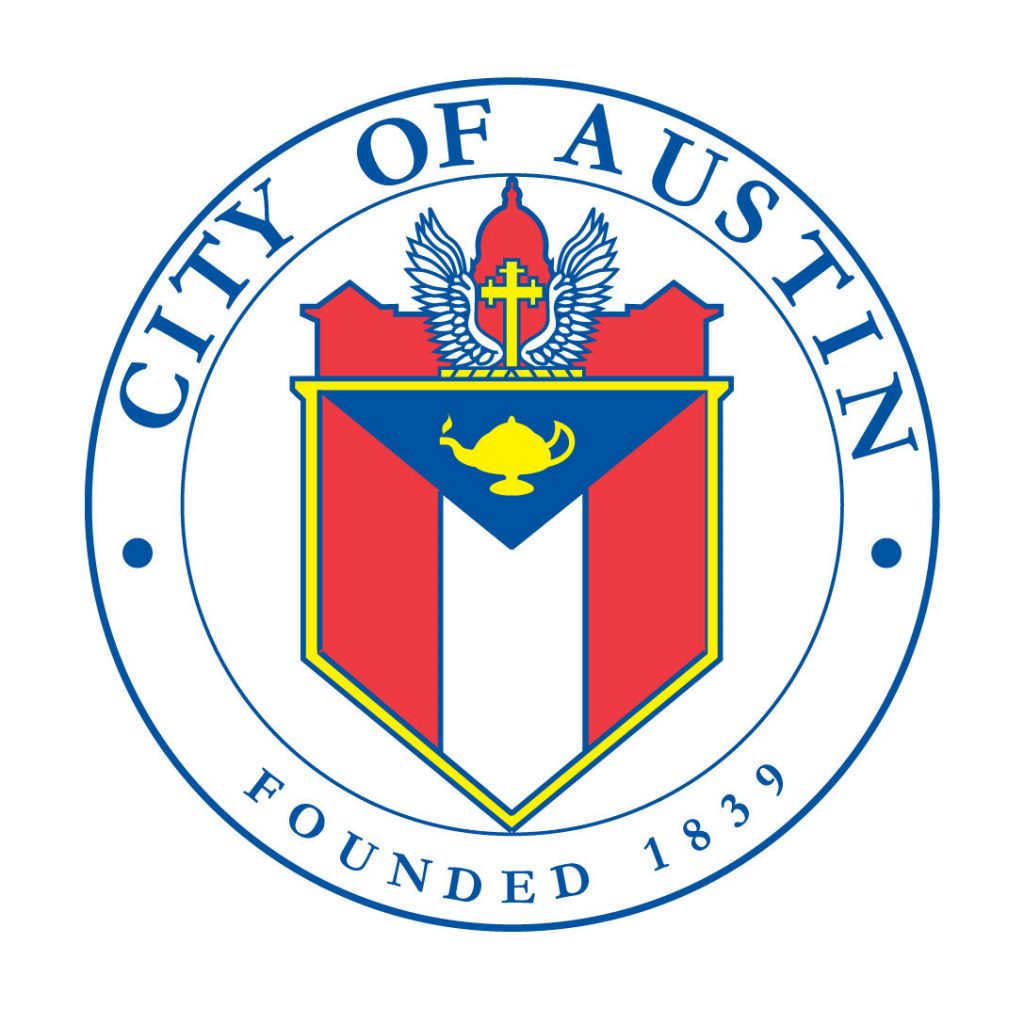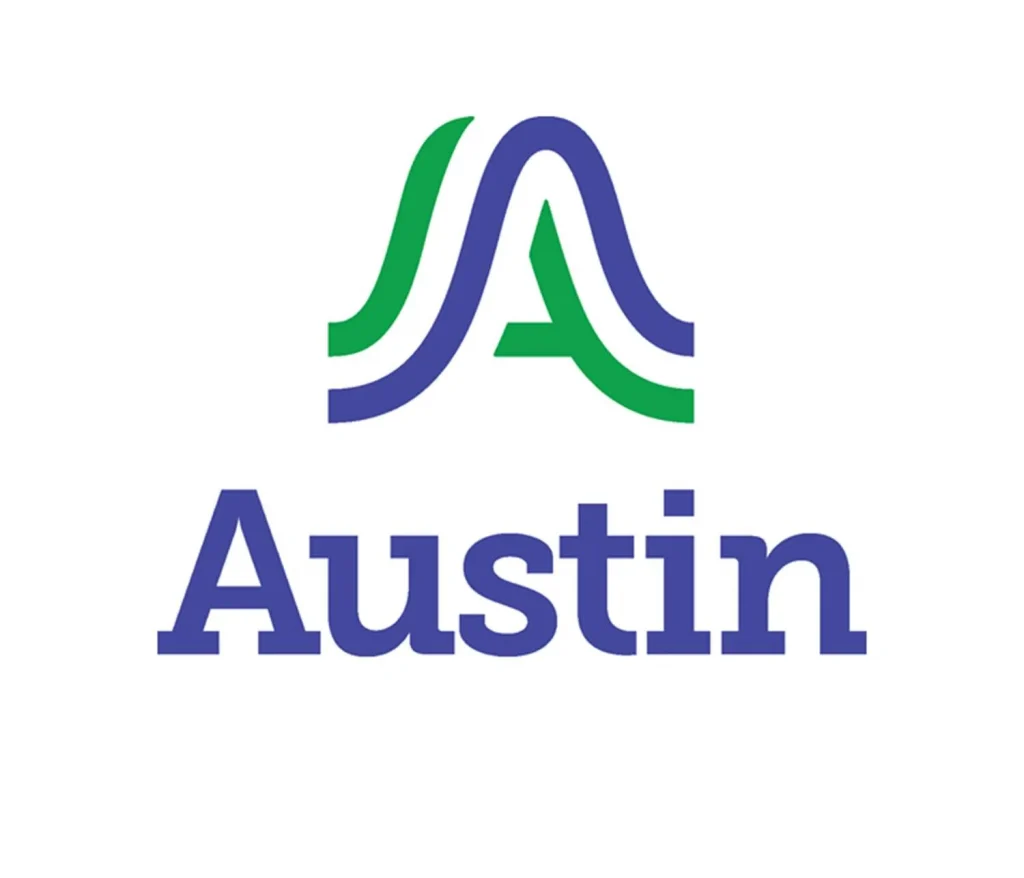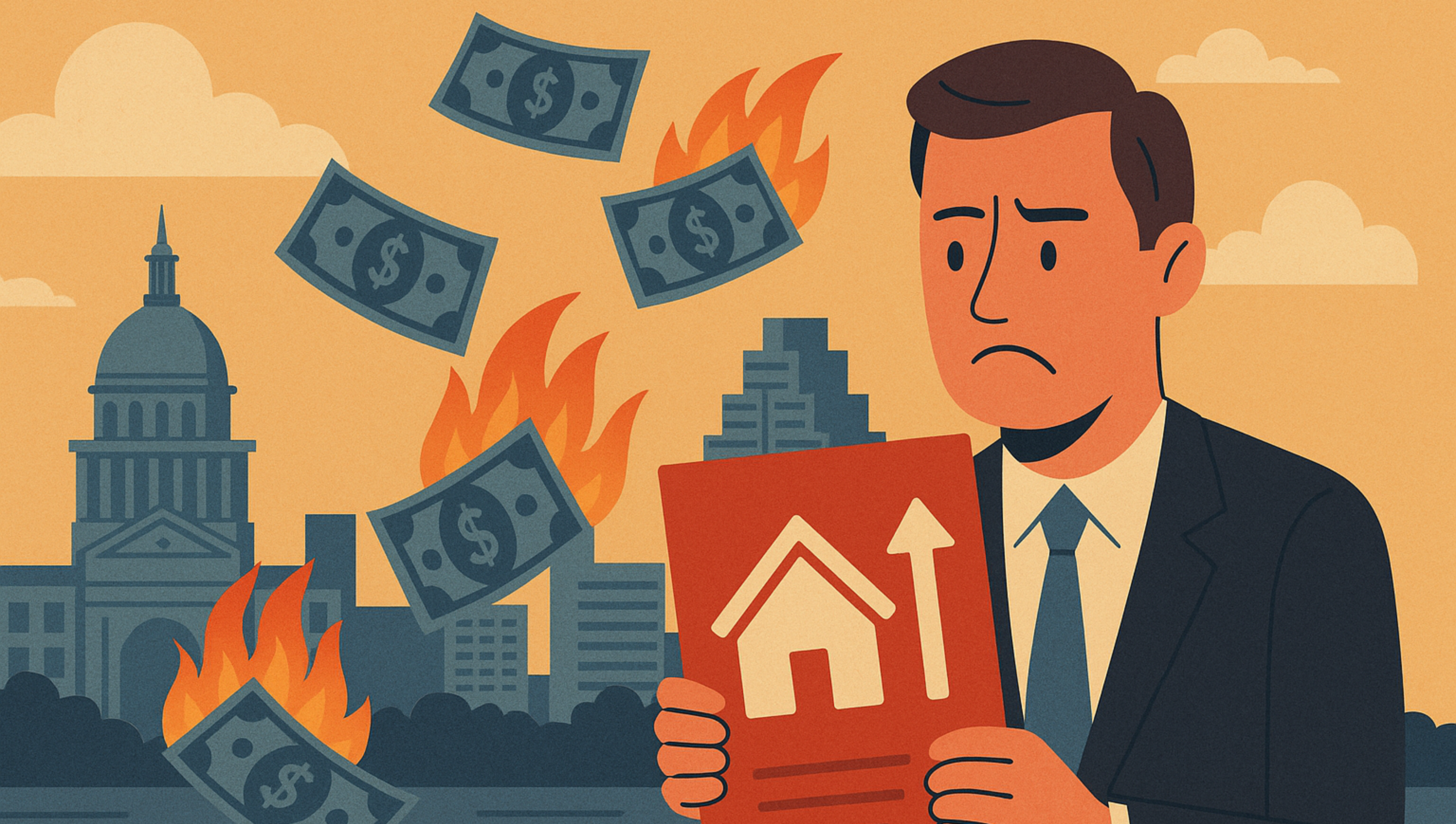In an era when fiscal restraint should be the guiding principle for government entities, the City of Austin recently demonstrated their disregard for taxpayers by unveiling a new logo as part of a “strategic modernization,” costing taxpayers over $1.1 million. The decision, announced amid a historic budget shortfall and just weeks before voters are asked to approve another property tax increase, exemplifies the kind of wasteful spending that burdens hardworking Texans.
As advocates for fiscal conservatism, we at Texans for Fiscal Responsibility call out this egregious example of wasteful government excess, because unnecessary aesthetic updates should never take precedence over essential services and financial prudence.
The Rebrand
The rebranding effort, described by city officials as a “strategic modernization,” aims to replace the city’s current seal, designed in 1916, with a new logo. The city claims this will help residents easily identify city workers, facilities, and services, as if the historic logo featured on city vehicles isn’t doing the job.


Austin is grappling with a severe budget crunch, yet city leaders prioritized a bloated vanity project over addressing core deficiencies in infrastructure, public safety, and essential services. More alarmingly, this announcement comes just before the November 2025 election, where voters will be asked to approve a major property tax hike to remedy the city’s shortfall.
While pleading for more revenue from taxpayers to sustain municipal operations, the city misused over a million dollars on a logo redesign that offers no tangible benefits to residents.
Adding insult to injury, the logo itself is a design that could have easily been designed in an AI image creation software, for a $20 monthly fee.
They are destroying the credibility of the tax increase proposal and showing the giant disconnect between government officials and the citizens they serve. Taxpayers are being asked to foot the bill for increased levies while watching their hard-earned dollars squandered on non-essential projects.
Severe flaws in Austin’s spending practices.
Another key problem of this fiasco, is that branding and marketing are tools for businesses competing in the marketplace, not for monopolistic government bodies funded by compulsory taxation.
The city’s claim that the historic seal “does not promote the City’s distinctive values and mission” begs the question: since when is it the role of municipal government to engage in corporate-style branding at taxpayer expense? Municipal branding initiatives divert resources from more pressing matters, such as repairing roads, training and equipping first responders, and addressing the homelessness crisis that plagues Austin’s streets.
The decision to proceed with funding this initiative in 2024, after deficit warnings were issued, indicates a dismissive attitude toward fiscal warnings. The council’s approval of the contract in May 2024 came just one month after staff highlighted a $3.5 million shortfall; They chose to ignore the red flag. Tabling the project would have saved the city over a million dollars.
A Growing Problem
Austin’s budget woes are not unique; Statewide trends indicate local governments accumulate debt first, then seek bailouts through higher taxes rather than implementing meaningful reforms.
Property taxes in Texas have risen steadily, placing an undue burden on homeowners and small businesses. According to data from the Texas Comptroller’s office, local property tax levies have increased by over 37% in just the last six years, far outpacing inflation and population growth. In Austin specifically, the proposed tax hike seeks to generate additional revenue for city services, yet the rebranding initiative demonstrates how foolishly funds are spent by city officials.
This is not an isolated incident, as there is other questionable spending in Austin. The city has faced scrutiny for its handling of homelessness programs, where millions have been allocated with little-to-no results. Similarly, transportation initiatives, such as Project Connect, have ballooned in cost, drawing discontent from taxpayers weary of never-ending tax hikes.
Looking Forward
At Texans for Fiscal Responsibility, we urge voters to scrutinize these patterns when considering the upcoming property tax increase. Approving higher taxes without demanding accountability for existing funds would only enable more waste. Instead, residents should advocate for reforms, including stricter budget oversight, and prioritizing existing revenue for essential services.
By squandering taxpayer dollars on vanity projects while simultaneously seeking more revenue through tax hikes, the city shows they are not committed to the principles of responsible governance. They are not serious leaders. Texans deserve leaders who prioritize efficiency, transparency, and true public needs. As the November election approaches, let this serve as a reminder: fiscal responsibility starts with saying no to unnecessary spending and yes to protecting taxpayer interests.
Texans for Fiscal Responsibility relies on the support of private donors across the Lone Star State in order to promote fiscal responsibility and pro-taxpayer government in Texas. Please consider supporting our efforts! Thank you!
Get The Fiscal Note, our free weekly roll-up on all the current events that could impact your wallet. Subscribe today!




